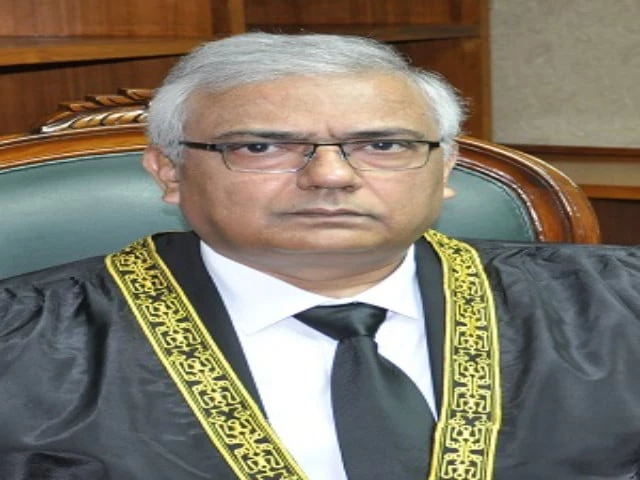Constitutional bench to reconvene after 2-month hiatus
Justice Aminuddin Khan-led five-judge bench to take up constitutional cases

After a gap of more than two months, the Supreme Court's constitutional bench (CB) will resume work from September 8. The last hearing was held on June 27, when the bench overturned an earlier SC judgment that had entitled the PTI to reserved seats.
According to the court roster, a five-judge CB led by Justice Aminuddin Khan will hear matters related to the interpretation of law and the Constitution from September 8 to 12. It is expected that the same bench will also resume proceedings in the super tax case.
Since November last year, the CB has been unable to decide the fate of the 26th Constitutional Amendment. In January, the bench took up the matter but adjourned it for three weeks, and the case has not been heard since.
Interestingly, the very creation of the CB is under challenge. Questions have been raised about how the beneficiaries of the 26th Constitutional Amendment can decide their own future.
The dynamics of the apex court have since changed. Eight new judges have been elevated to the Supreme Court since February, most of whom are now included in the CBs. Currently, 15 judges have been nominated for the CBs. Yet even after ten months, they have not framed rules for their regulation.
Article 191A(6) provides that, notwithstanding anything contained in the Constitution but subject to law, judges nominated under clause (1) may make rules regulating the practice and procedure of the CBs.
This provision shows that it is the CB judges themselves who must frame the rules. Justice Jamal Khan Mandokhail also raised this issue during the reserved seats case.
So far, the CB has issued three key rulings.
Exercising review jurisdiction, it overturned an earlier SC verdict entitling the PTI to reserved seats. It endorsed the trial of PTI activists in military courts and it upheld the transfer of judges from various high courts to the Islamabad High Court (IHC), a process initiated by the executive.
However, detailed judgments in all three cases — crucial for the independence of the judiciary, fundamental rights, and democracy — are still awaited. Two minority judges have issued detailed opinions in the military courts case, but the majority judgment has been pending since May 7.
The CB could also soon issue a detailed ruling on the Sunni Ittehad Council's objections to the composition of the bench hearing review petitions in the reserved seats case.
Meanwhile, IHC judges have challenged the majority decision that endorsed transfers to the IHC, and it is expected that their intra-court appeal (ICA) will be listed in the next judicial year.
Observers note that the delay in adjudicating petitions against the 26th Constitutional Amendment will further erode public trust, especially as concerns are already being raised over the exclusion of dissenting judges from the CB.




1725254039-0/Untitled-design-(24)1725254039-0-208x130.webp)
















COMMENTS
Comments are moderated and generally will be posted if they are on-topic and not abusive.
For more information, please see our Comments FAQ